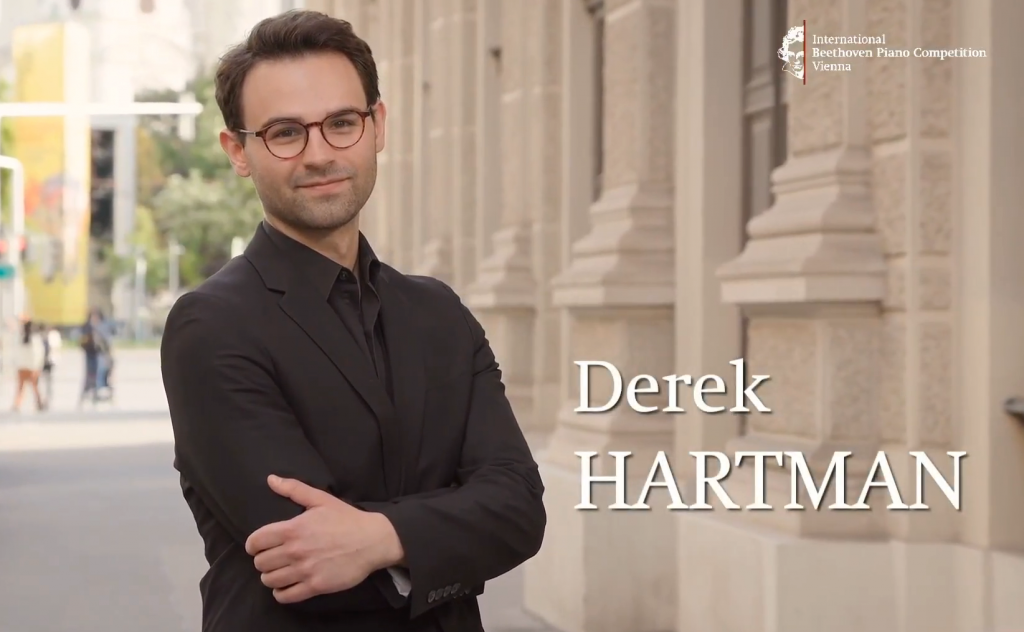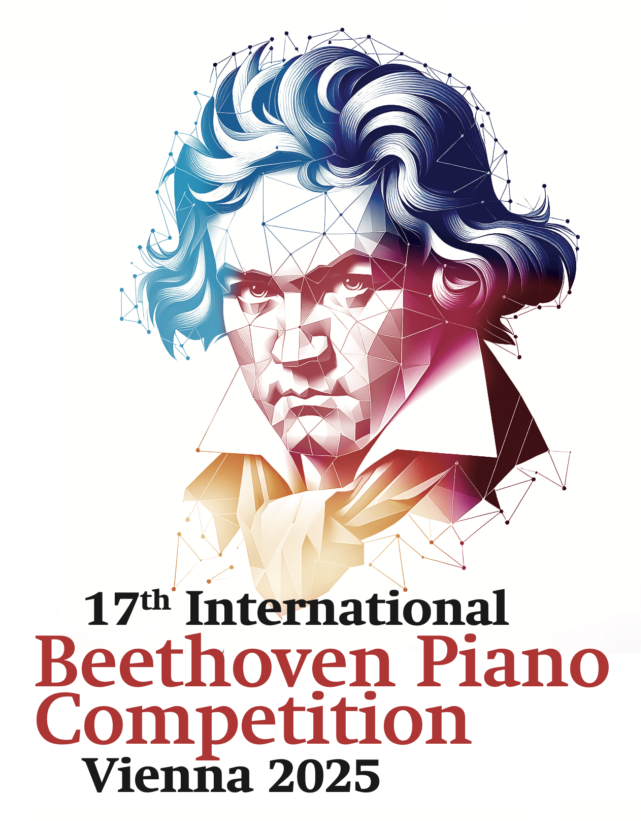
 Inspired by Beethoven when he first began to play piano at age five, Derek Hartman‘s music career took a huge step forward last week as he was awarded first prize at the prestigious 17th International Beethoven Piano Competition in Vienna, Austria. The Minnesota native became the first American-born musician to win top honors at the event, which has been staged every four years since 1960 and is one of the most renowned competitions of its kind in the world. Hartman currently serves as lecturer of piano at Blair School of Music and is a Yale University doctoral candidate.
Inspired by Beethoven when he first began to play piano at age five, Derek Hartman‘s music career took a huge step forward last week as he was awarded first prize at the prestigious 17th International Beethoven Piano Competition in Vienna, Austria. The Minnesota native became the first American-born musician to win top honors at the event, which has been staged every four years since 1960 and is one of the most renowned competitions of its kind in the world. Hartman currently serves as lecturer of piano at Blair School of Music and is a Yale University doctoral candidate.
“To get a prize in a competition takes a lot of hard work, but it also takes a lot of luck. I’m just really grateful that it went my way this time. I feel like it’s kind of made my whole relationship with music and piano come full circle.” – Derek Hartman
“The Blair piano area is immensely proud of professor Hartman, who claimed this top prize as an American in a competition steeped in the European tradition, which is quite rare,” said Keyboard Area Chair and Professor of Piano Heather Conner. “Derek brings the same commitment and excellence to teaching as he does to performing and is a kind and supportive colleague.”
For the 2025 competition, the jury reviewed more than 300 applications from 32 countries, with 21 finalists being invited to Vienna. The event is unique in that the entire performance repertoire is comprised entirely of works composed by Beethoven, with contestants playing the pieces entirely from memory.
The dramatic finale event was hosted in Vienna’s iconic Musikverein Wien Golden Hall, which was built in 1870 and still serves as the home of the Vienna Philharmonic and Vienna Mozart Orchestra. The three finalists performed with full orchestra accompaniment to a packed house for the final program. For his efforts, Hartman received a cash prize of €30,000 and a Bosendorfer Grand Piano, valued at $195,000.
We had the opportunity to speak with the still jet-lagged musician and educator for an exclusive interview to learn more about his whirlwind experience in Austria.
First, congratulations on this honor. What made you seek out this particular competition? Why Beethoven?
I have applied to many competitions, but I will say that the Beethoven Competition was a special one for me because Beethoven was the reason I got into classical music in the first place. As a kid, I was drawn to his music more than that of any other composer. With Beethoven, I feel that I always have something to say. Since the repertoire consisted solely of works by Beethoven from the screening round to the final round, it felt different right off the bat.
Many of the previous winners of this competition have gone on to have massive music careers. Is that something you were aware of when you entered?
Yeah, I look into these things as each application deadline is coming up. I took a look at their website and saw that Mitsuko Uchida won this in 1969, which is pretty cool.
You’re so used to not winning, to be honest, you don’t really let yourself understand the magnitude of it. There are so many disappointments and setbacks, so when it does happen and you do get to take home a prize, that’s when it starts to set in. It is insane that, at least in the context of the Beethoven competition, I could be mentioned in the same breath as some of these people.
What performances from the week stand out to you?
The last movement of the Appassionata Sonata, Op. 57 is the piece that got me into Beethoven more than any other. I distinctly remember it being on one of the first CDs that I owned when I started piano lessons, and I’d listen to it over and over. Getting to play that particular piece in Vienna, the city where it was written, was amazing.
I chose Beethoven’s 4th Concerto for the finale, another really important piece to me. When I was an undergrad at Northwestern, I wrote a cadenza (a unique addition to the original work) for that concerto that paid homage to the Appassionata Sonata, which Beethoven wrote around the same time as the Concerto.
One of my most inspiring mentors, Vasili Byros, got me acquainted with the work of Robert Levin, a pianist who has absorbed the style of 18th century composers to such a degree that he composes cadenzas and compositions in that style. He also happened to be on the competition jury. I was on the fence about playing my own cadenza (instead of Beethoven’s), but when I reached the finals, I realized I couldn’t pass up the opportunity to share my offering with Mr. Levin and the audience in that hall.
I think playing my own cadenza set me apart in the final round, but mainly I just wanted to express my humble and deep admiration for Beethoven’s music in my own way. It was also cool to have audience members come up to me and ask whose cadenza I had played and to tell them it was my own.
The finals were held in the Musikverein Wien Golden Hall, a legendary venue. Had you been there before?
It’s on a lot of people’s short lists for the must-see halls in Europe. But I had never been to Vienna before this, so I had never been to the hall. It was something I was aware of going into the competition, that it was an opportunity the finalists would get, but like I said before, you don’t really let yourself go there and say, “oh, that could be me” because you don’t want to set yourself up to be too disappointed.
I had two days to process that it was going to happen. I learned I was a finalist on Thursday, and I was performing there on Saturday. So, the feeling of “how cool it is that I got to play there” has mainly been taking place since then.
But I do remember standing on stage after the performance, taking my bows and taking in the applause, and thinking “this might be the only time I get to play in a hall like this and I’m just going to enjoy it and savor this moment.” I’m grateful that I had the wherewithal to feel that way at the moment.
What is your overall takeaway from this experience?
This was an amazing opportunity. To get a prize in a competition takes a lot of hard work, but it also takes a lot of luck. I’m just really grateful that it went my way this time. I feel like it’s kind of made my whole relationship with music and piano come full circle. So much of my life has revolved around a love for Beethoven’s music. That’s kind of how it started and that’s where it’s led me, to this really big career milestone. There’s a sense of inner peace that I’ve achieved with that, and it gives me optimism for the future.
Also, I have to say it was really cool that my parents were there. It’s been a long time since they’ve traveled to see me play in a competition. They are newly-retired and had the travel bug, so they decided, well, it’s not every day we’re gonna get to go to Vienna. So, they came along, showed me immense support and it just so happened to be the one where the results went my way, which is very special to me.
How have you enjoyed your first year at Vanderbilt and Blair School of Music?
I’m enjoying Nashville very much and Blair has been a great place for me to be. First of all, it’s obviously just a fantastic school. It’s great to be around excellent, talented students and an illustrious faculty. People my age, especially without their terminal degree, often don’t get the opportunity to teach at a university, and so it’s not lost on me how lucky that is.
I really enjoy the fact that I get to work with students from the community in the Academy. They told me at my interview, “there’s really not a school like it,” regarding the fact that there’s total integration between the academy and the college. Now I get to see that firsthand.
I’ve always loved teaching kids and this particular job allows me to do that, which is great, but I also get to be around the faculty and the university atmosphere, so it’s been fantastic. The diversity of students I get to work with and the diversity of activities I get to do— teaching beginners, coaching chamber music, doing recital hearings— I enjoy all of it, so I’m looking forward to year two.